By Eric Vandenbroeck and co-workers
An Overview Of Chinese Spy Activities
On 27 April 2024 The New York Times
reported; "Suddenly, Chinese Spies seem to be popping up all
over Europe."
The Government of China is engaged in
espionage overseas, directed through diverse methods via the Ministry of State
Security (MSS), the Ministry of Public Security (MPS), the United Front Work
Department (UFWD), People's Liberation Army (PLA) via its Intelligence Bureau
of the Joint Staff Department, and numerous front organizations and state-owned
enterprises. It employs a variety of tactics including cyber espionage to gain
access to sensitive information remotely, signals intelligence, human intelligence
as well as influence operations through united front activity targeting
overseas Chinese communities and associations.
A flurry of arrests this week reflects
the continent’s newly toughened response to Beijing’s espionage activities and
political meddling.
One of the men, a young Briton known for
his hawkish views on China, worked as an aide to a prominent member of the
British Parliament. Another, a German citizen of Chinese descent, was an
assistant to a member of the European Parliament representing Germany’s far
right.
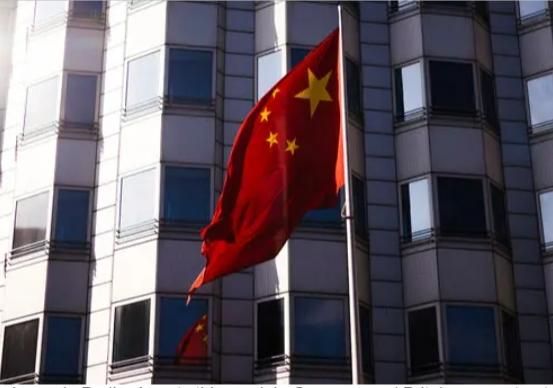
While from different
countries and seemingly divergent backgrounds and outlooks, both men became
ensnared this week in accusations of espionage on behalf of China — and a
widening pushback in Europe against malign Chinese influence in politics and
commerce.
In all, six people in three separate cases have been
charged this week in Europe with spying for China: two in Britain and four in
Germany.
With the intent of
following up on the NYT article, we will start an overview of earlier Chinese
Spy occurrences we reported on of which The New York Times is a continuation to
continue further in Part Two.
A Chinese spy has betrayed his country
to defect to Australia in a move that's placed his life, and the safety of his
young family, at risk.
Wang 'William' Leqiang is the first
Chinese operative to ever blow his cover in Australia.
In doing so, he's revealed a trove of
insider secrets from within Beijing's intelligence operations, providing
details on how major political interference operations are being run in Hong
Kong, Taiwan, and Australia.
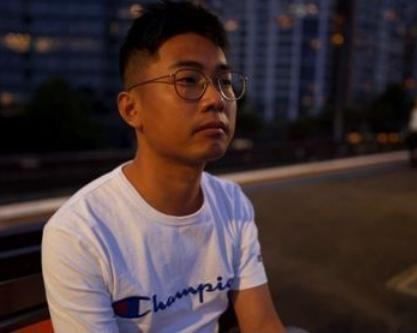
The 27-year-old has taken his
information to the Australian counter-espionage agency, ASIO and, in return, he
is seeking urgent protection from the government.
Wang is currently hiding out in Sydney
with his wife and two-year-old son.
In an interview with 60 Minutes, The
Age, and The Sydney Morning Herald, Wang said he is living in constant fear of
being watched, followed or attacked.
"I have moved three times and I may
move again in the future… as the feeling of being followed is really
scary," he told investigative journalist Nick McKenzie.
Wang has admitted personal
involvement in a series of Chinese espionage missions since 2014.
He has provided previously unheard
details about the kidnapping of five booksellers from the Causeway Bay Bookshop
and their rendition to the Chinese mainland.
"I was one of the insiders who
conveyed the task," Wang said.
When asked by McKenzie why Australians
should believe his claims, Wang responded: "Considering my interests, if I
don't tell the truth, the Australian government will not protect me. There is
no benefit for me. Every detail and every incident I have said can stand up to
scrutiny."
His testimony includes exposing how
Beijing's spies are infiltrating Hong Kong's democratic movement, manipulating
Taiwan's political system, and operating with impunity in Australia.
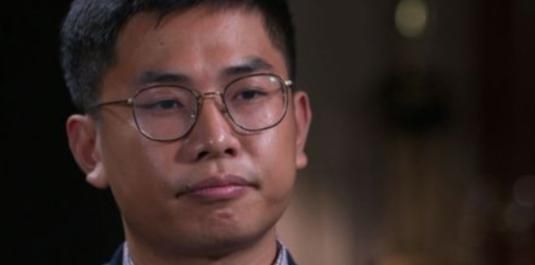
Wang claimed his loyalty to Beijing
faltered in May when he received a fake South Korean passport and was ordered
to travel to Taiwan to meddle in the upcoming presidential election.
He revealed it was the moment of truth
that made him realize he was at risk of losing his true identity forever.
"This time I was requested to
change my name and whole identity to go to Taiwan and be a spy
there," Wang said.
"This is the main reason why I came
to Australia to seek asylum. As Taiwan's ability of anti-infiltration is very
strong, once I was found out, then my safety would be at stake. What would my
family, my young son do? Who could protect me?"
Mr Wang said he is willing to help the
Australian government understand China's intelligence system and he has
knowledge about operatives working here.
He described his decision to take on the
Chinese government and its powerful intelligence operation as an ant
challenging an elephant. But he said, at the very least, his son will one day
understand that he stood up for what counts.
Since his revelations have gone public,
police in Shanghai have released a statement accusing Mr Wang of being a
convicted fraud and wanted fugitive.

Federal MP Andrew Hastie
But Federal MP Andrew Hastie said Wang
deserves Australia's protection.
"I think it takes huge reserves of
courage to step out into the public square as a former Chinese spy and reveal
to the Australian public what you've been up to," he said.
"I'm of the view that anyone
willing to assist us in defending our sovereignty, deserves our
protection."
For now, though, Wang and his young
family are in no man's land, counting down the days of his tourist visa and
watching his back.
As we pointed out in a six-part article
series the Government of China is engaged in espionage overseas, directed
through diverse methods via the Ministry of State Security (MSS), the Ministry
of Public Security (MPS), the United Front Work Department (UFWD), People's
Liberation Army (PLA) via its Intelligence Bureau of the Joint Staff
Department, and numerous front organizations and state-owned enterprises. It
employs a variety of tactics including cyber espionage to gain access to
sensitive information remotely, signals intelligence, and human intelligence as
well as influence operations through united front activity targeting overseas
Chinese communities and associations.
Hence we proceed with an overview of
earlier Chinese Spy occurrences we reported on of which The New York Times is a
continuation.
Although our earlier six-part
investigation about Chinese spy operations at the time had already some time in the making, we decided to go ahead the day top officials from the U.S. Justice Department
partly to send out a warning unveiled a slate of indictments against 13 Chinese
nationals accused of spying on behalf of Beijing.
Next, we covered in Part Two, how Chinese police stations in the Netherlands
were ordered to close immediately, and the British
government announced it would step up work to prevent “transnational
repression” as police investigate reports of undeclared Chinese “police
stations” around the country.
In Part Three, we described how the Ministry of State Security
(MSS) could lure in foreign friends from the highest levels. And in Part Four,
we described the circumstances that allowed past MSS
spy operations to thrive.
With its rejuvenated
authority, the CCP advocates a political agenda characterized by overt
nationalism. This nationalism promotes a modern and state-centric
constructivist narrative that predicates China's global ambitions upon support
for this ideology.
In Part Five we described how the
Chinese spy agency (MSS) foraged into using a Buddhist Temple. Master Yishun,
the abbot of Nanshan Temple and head of its MSS-backed charity, is the face of
a new breed of Chinese Buddhists. More in tune with the pronouncements of Xi
Jinping than Buddha’s words.
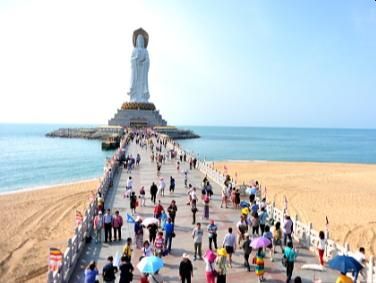
The strategy
that China’s Ministry of State Security (MSS), its principal civilian intelligence
service, took toward the United States after 9/11 followed a Chinese
saying, ge an guan huo,
which roughly translates as “watch the fires burn from the safety of the
opposite river bank, which allows you to avoid entering the battle until your
enemy is exhausted.” The MSS followed this saying to a T. Its long-term aim was
to contain the United States and then supplant it in Southeast Asia. As the
United States was mired in the Middle East, the gains made by the MSS went
largely undetected or appreciated by U.S. intelligence.
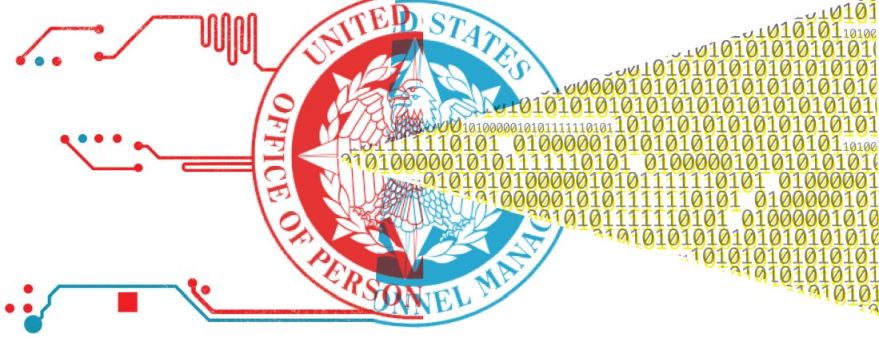
Chinese intelligence was soon winning
its war on U.S. spies. In 2010 the MSS dismantled a major CIA network being run
from its station in Beijing. This led to China’s recruitment of former CIA
officer Jerry Chun Shing Lee. The justice department says Lee was contacted by
Chinese intelligence agents in 2010. They offered him money, promising to take
care of him "for life" in exchange for the required secret
information. Hundreds of thousands of dollars were deposited in his Hong Kong
bank account between May 2010 and December 2013. Lee created a document
containing information about CIA activities, including locations to which US
agents would be assigned.
Hong Kong media identified the man in the blue tie as
Lee.

The justice
department said that Lee was interviewed by CIA officers in 2012, during which
he said he had met Chinese intelligence officers but concealed that they had
set him tasks. In 2013 he first denied knowing about the document on his USB
drive and then admitted he had created it but said he had never handed it on to
Chinese agents. He was arrested at New York's JFK airport in January 2018.
The information
provided by Lee is said to have helped China to bring down a network of
informants between 2010 and 2012. About 20 informants were killed or
jailed during that period - one of the most disastrous failures of US
intelligence in recent years.
Lee is not the only former CIA officer convicted of
working with China. A former CIA spy Kevin Mallory was sentenced to 20 years in prison
after being convicted of conspiring to transmit US defense secrets to China.
thanks to successive national security legislation
passed under President Xi Jinping, Chinese businesses must work with its intelligence
services whenever requested. They are effectively silent partners in
Chinese commerce with the outside world. Another difference between Chinese
intelligence and Western powers concerns what those in the spy world call
ubiquitous technical surveillance. Facial recognition, phone apps, and CCTV all
make China an infinitely harder target for Western agencies to collect
intelligence than Chinese services’ targets in open Western democracies.
Then from January 28 to February 4, 2023, a
high-altitude balloon originating from China flew across North American
airspace.
|
Location |
Airspace
over the United States, Canada, and territorial
waters |
|
Type |
Airspace violation; diplomatic incident |
|
Cause |
High-altitude
Chinese balloon entering foreign airspace |
|
Motive |
force majeure due
to westerlies or
reconnaissance (allegedly) |
|
Participants |
|
|
Outcome |
Balloon
downed by an AIM-9 Sidewinder fired
by a U.S. Air Force F-22 Raptor; debris recovered[1] |
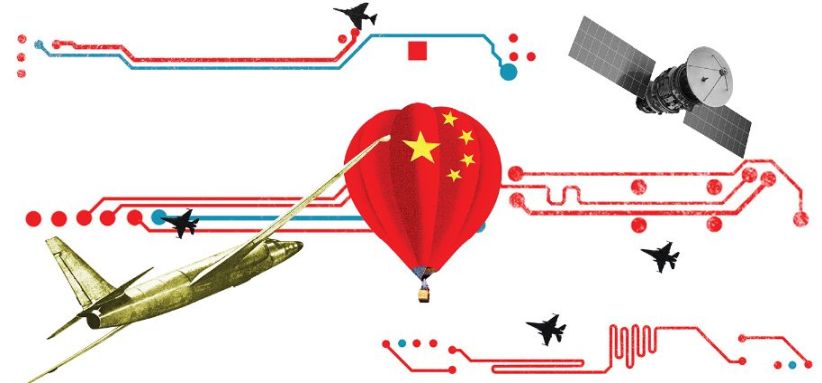
At the time China’s spy balloons were equipped
with state-of-the-art sensors capable of eavesdropping on electronic signals
from near space that satellites could not.
On December 28, 2023, it
was determined that the balloon utilized an undisclosed American service
provider to provide data back to Beijing.
For updates click hompage here